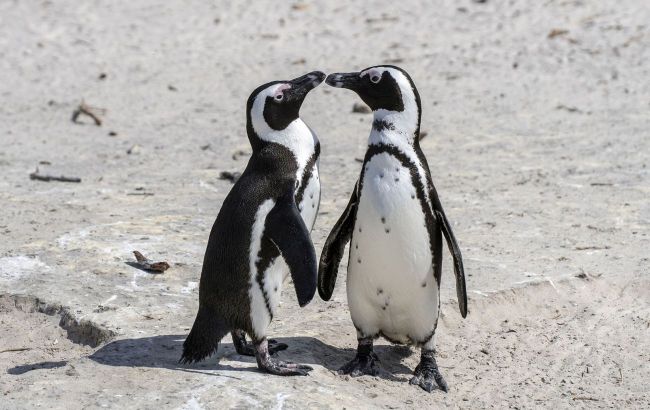Wildlife activists raise alarm: African penguins face extinction
 African penguins (GettyImages)
African penguins (GettyImages)
African penguins are on the brink of extinction in the wild. The species' sharp population decline has led to its designation as "endangered" on the International Union for Conservation of Nature's Red List.
According to the World Wildlife Fund, the number of African penguins capable of breeding has dropped to less than 10,000. This means the species' population has decreased by about 75% over the past 30 years.
A study by the IUCN indicates that the alarming acceleration of this decline suggests a critical situation — the population is projected to fall by more than 80% over three generations. Furthermore, this trend "shows no signs of reversing" and calls for immediate conservation action.
Several factors contribute to the African penguin's plight. Climate change has made food sources harder to find, while competition from commercial fishing near their breeding grounds exacerbates the issue.
Although South Africa has restricted fishing zones near African penguin colonies, these measures appear insufficient to protect essential feeding areas, where fishing is still permitted.
As a result, food competition threatens the survival of African penguins. Another significant threat comes from predators, such as fur seals.
Penguins face competition for food and breeding sites with fur seals, which favor the same habitats. However, fur seals pose an additional danger as they hunt penguins — along with wild felines like leopards.
Moreover, penguin chicks and even eggs can be targeted by kelp gulls and sacred ibises. The African penguin is also distinct from some bird species in its monogamy.
Scientists have observed that 80-90% of pairs remain together for the next breeding season. In some cases, penguin pairs have lasted over 10 years.

